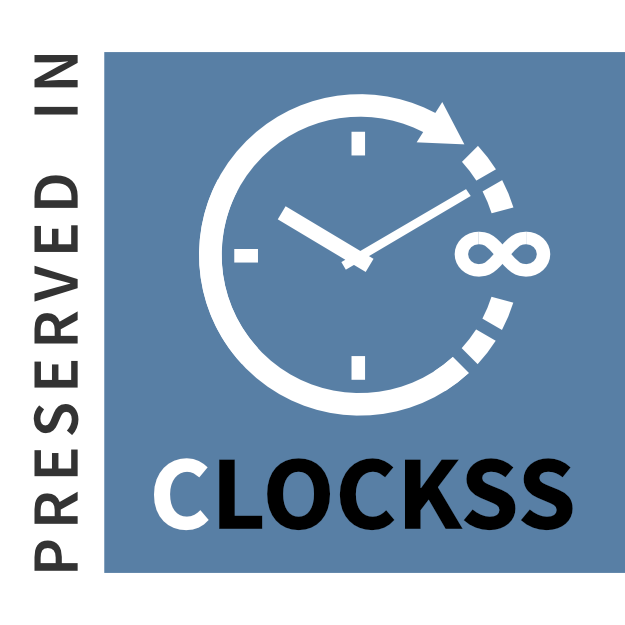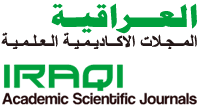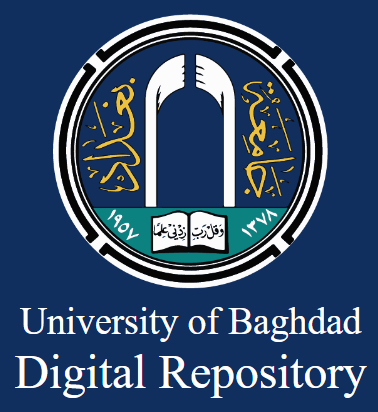Contemporary Iraqi arts techniques and their reflection on the products of the students of Art Education
DOI:
https://doi.org/10.35560/jcofarts1150Keywords:
techniques, drawing, contemporary, reflection, art educationAbstract
The techniques of contemporary Iraqi painting and their reflection on the productions of students of art education is an important subject in the field of painting at the theoretical and practical levels in academic study, whether theoretical or practical. Al-Iraqi is one of the arts with historical roots and a distinguished position among other artistic genres. Painting has received a sufficient level of development through the use of various contemporary techniques to advance it for the better.
The methodological framework included the problem of research and the need for it, and then the importance of research came in shedding light on the techniques of contemporary Iraqi painting, and the impact of these techniques on the productions of students of art education and the benefit that was reflected in their official productions. The research aimed to reveal the immediate techniques and their mechanisms, and the extent of their reflection on the productions of art education students. By stopping and defining terms?
The theoretical framework included two sections: the first: a historical introduction to contemporary Iraqi painting, its roots and beginnings. The second: contemporary Iraqi painting techniques. The research procedures included: The research community and the research sample included (3) official works,
The results and conclusions reached by the two researchers:
1. The techniques appeared strongly in all the art education students’ outputs in all samples.
2. The student relied on his imagination to produce new formal compositions.
3. The small number of textbooks on drawing techniques to be taught to students of the Department of Art Education.
References
Abdel-Gawad, A. (1983). Principles of Sociology. Cairo: East Renaissance Library.
Adel,, K. (2000). The Iraqi formation (establishment and diversification). Baghdad: House of General Cultural Affairs.
Al Saeed, S. (1983). Chapters from the History of the Fine Arts Movement in Iraq. Baghdad : Arab Horizons House for Printing.
Al-Basiouni, M. (1986). Secrets of Fine Art. Cairo: The World of the Book.
Al-Gohari, A. (1987). Al-Sahih Taj al-Lughah wa Sahih al-Arabiyyah. Beirut: Dar al-Ilm Li’l Millions.
Al-Haffar, S. (1981). , Humans and Environmental Problems. Qatar: Qatar University.
Al-Khatib, A. (2005, October 27). On ancient Iraqi art. Al-Mada newspaper(Issue 522).
Alloush, S. (2001). A Dictionary of Contemporary Literary Terms. Cairo: Arab Horizons House.
Al-Nouri, Q. (1998). Human Environment from the Perspective of Culture and Society. Irbid: Yarmouk University.
Al-Quraishi, F. (2010). The Chemistry of Vitrification and the Art of Ancient Pottery. Baghdad: Dar Al-Kutub Al-Ilmiya.
Al-Rawi, N. (1962). Reflections on Modern Iraqi Art. Baghdad: Directorate of Arts and Popular Culture at the Ministry of Guidance.
Al-Rubaie, S. (1986). Contemporary Plastic Art in the Arab World. Baghdad: General Cultural Affairs House.
Al-Zubaidi, J. (1986). Contemporary Artistic Painting in Iraq. Baghdad: House of General Cultural Affairs.
Georgy, G. (1990). Consciousness and Art. (N. Nayouf, Trans.) Kuwait: The National Council for Culture, Arts and Literature.
Ghazwan, e. (1986). The Contemporary and Inherited Arab Critic. Baghdad: Union of Arab Writers and Writers, Research of the Twelfth Conference.
Hamdan, Y. (2014). Sociology of Contemporary Painting in Iraq. University of Baghdad, College of Fine Arts, Master Thesis.
Kamel, A. (1993). Contemporary Iraqi Painting, the Vitality of Forms and the Magic of Reality. Baghdad: Arab Horizons Magazine.
Qandil, A. (2006). Teaching with Modern Technology. Cairo: World of Books for Publishing and Distribution.
Scott, R. (1980). Foundations of Design. (A.-B. A. Ibrahim, Trans.) Cairo: The Franklin Institute for Printing, Dar Nahdet Misr.
Ebraheem Mongy, Y. ., Amer Al-Hajri, S. ., & Al Mardhoof Al Saadi, N. . (2021). Inspiring heritage and symbols of local identity in contemporary Omani Graphic Art. Al-Academy, (102), 81–104. https://doi.org/10.35560/jcofarts102/81-104
Nasser AL Nahari , N. . (2021). The Role of Contemporary Interactive Art Works Economically and Culturally "An Analytical Study". Al-Academy, (102), 123–144. https://doi.org/10.35560/jcofarts102/123-144
Kalied Talib Alsamurai, A. . (2021). The communicative education of fine arts in the COVID-19 crisis and its manifestations in the modernization of the works of the Iraqi painter "Nabil Ali as a model". Al-Academy, (102), 207–222. https://doi.org/10.35560/jcofarts102/207-222
Daryanavard (al-ghaisi), Z., Balavi, R., & M. Bataineh, A. (2021). The Communicative Functions in The Speech of The UAE National Anthem in The Light of The Eloquence of The Audience. Al-Academy, (101), 145–156. https://doi.org/10.35560/jcofarts101/145-156
Downloads
Published
Issue
Section
License
Copyright (c) 2023 Alham Abd Al Saheb, Akhlas yas khudhair

This work is licensed under a Creative Commons Attribution 4.0 International License.













